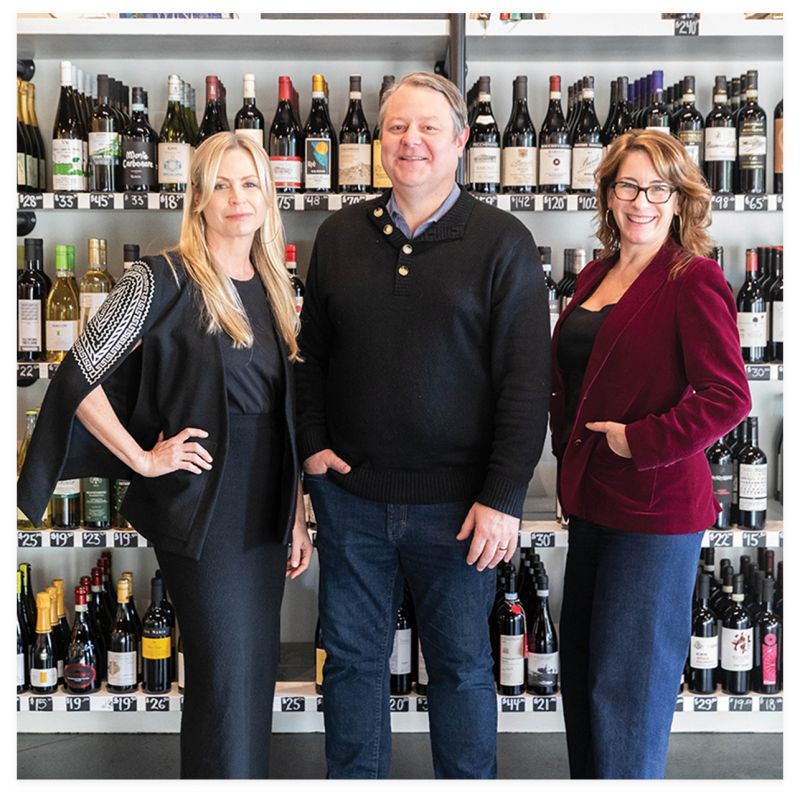A part of our local Slow Food chapter, the organization promotes "good, clean, and fair wine" for all

Slow Wine Charleston cochairs (left to right) Lauren Mowery, Jason Nolley, and Kellie Holmes bring an array of expertise to the organization’s mission of increasing accessibility to “good, clean, and fair wine” as a wine writer, sommelier and store owner, and restaurant consultant, respectively.
CM: What led you three to Slow Wine?
KH: My background is in restaurants, where I curate wine programs that follow sustainable principles. Lauren and I met at a board event for the Charleston chapter of Slow Food, and I met Jason, the owner of Jessamine + Vine wine shop, through a trade event in Abruzzo, Italy, and made him join the board.
LM: My background in wine journalism has always had an environmental component. Wine is agriculture; when you’re visiting vineyards, you’re speaking with farmers and learning how climate change is affecting their grapes. When I came to Charleston, I started doing wine tastings, first virtually during the pandemic, and later live at The Wonderer. After reaching out to the local Slow Food chapter, I suggested hosting wine tastings under the premise of Slow Wine to engage with the community on the value of fair labor and ethical farming practices.
CM: How do your areas of expertise come into play while cochairing?
KH: The three of us come at events from different angles. I‘ve been on the local Slow Food board since 2016 and have the ability to facilitate events. Lauren has connections as a journalist and from traveling all over the world, and Jason has a wealth of knowledge on the retail and restaurant side.
JN: I’m getting direct feedback from customers, and that’s a real benefit for the organization. They want to know the story behind the bottle and celebrate the hard work of the people who made the product.
CM: Tell us about some of the events you produce for Slow Wine.
JN: We did a seminar last December about field blends, wines crafted from multiple grape varieties grown and harvested together. It was our first seated tasting, and I hope that will become an annual event.
KH: I’ll be moderating a workshop with a master sommelier and two other speakers next month during Charleston Wine + Food about how to identify slow wines. If you understand how someone is farming, you can make an informed decision while shopping, and on the restaurant floor.
CM: How’s the local wine scene?
LM: When I first moved here, I wrote about this zeitgeist of people becoming more open to wine and how this wasn’t just a beer and bourbon town anymore. We are a very energetic chapter of Slow Wine.
KH: Charleston is a hospitality-focused city with a wealth of people already abiding by Slow Food rules. The wine community is also outstanding; there are restaurants with beautiful wine programs and smaller wine shops that really focus on small production and handmade wines. It’s diverse and insular in a very positive way.
CM: What’s on tap for the future?
LM: We’re looking to expand beyond wine into “Slow Sips,” a more inclusive concept for all the beverages we enjoy that follow the same principles. We’ll be doing an event on February 28 at Pink Cactus that’s a tasting of several mezcals I sourced from artisan and environmentally friendly producers during my extensive travels to Mexico last year. As a heritage product, mezcal is so reflective of the community and terroir of the place it’s made.
Photographs by (group shot) Aleece Sophia, (Mezcal) Fabian Montano Hernandez, (CD) Food Impressions, & (tea) Svetlana Khutornaia & courtesy of (sunset) Kellie Holmes & (scuba diving) Lauren Mowery